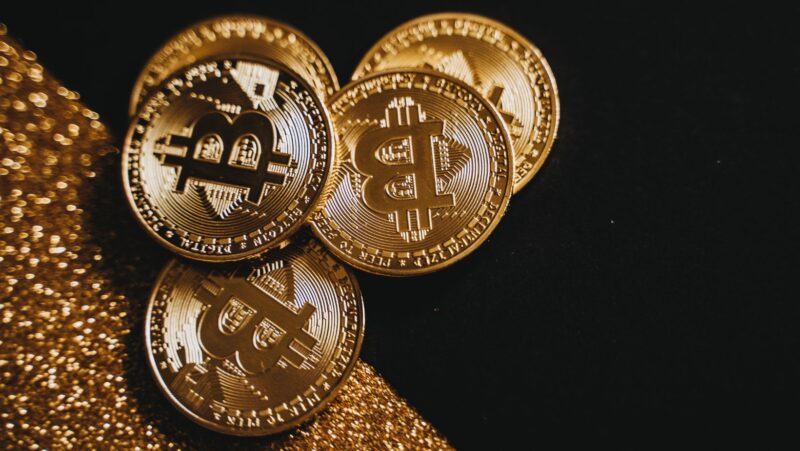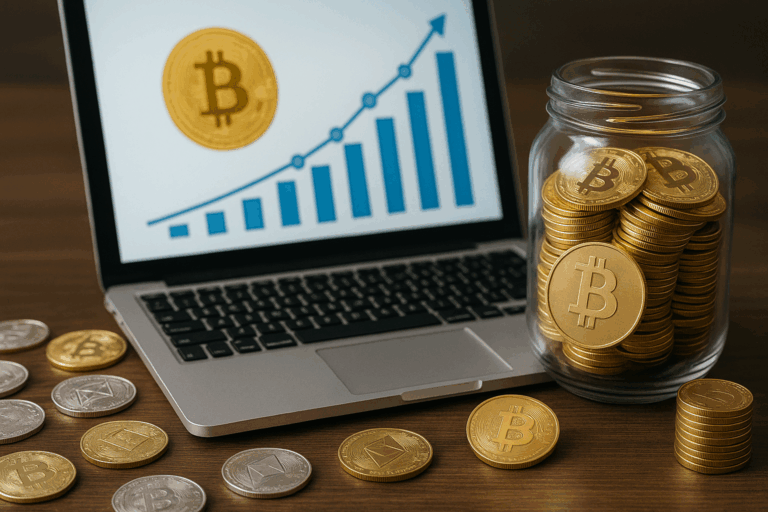Cryptocurrency is a major component of digital finance, with a global market capitalization of approximately $3.44 trillion as of July 2025. Bitcoin leads with a $2.16 trillion market cap, accounting for about 63% of the total, followed by Ethereum at roughly $310 to $317 billion. Companies in finance, retail, and tech have started using crypto for faster payments. Cross-border transfers and asset tokenization show how cryptocurrency is changing the way financial assets are transferred and managed.
International Payments Reinvented
First among game‑changers are international remittances. Migrant workers and expatriates now send funds overseas almost instantly, thanks to crypto platforms that settle payments in minutes rather than days. Companies like Kraken, Stellar, and Airwallex have seen increased usage thanks to their ability to settle cross-border payments in minutes, offering a faster and more cost-efficient alternative to traditional banking channels.
Retail and Online Commerce
Retail and e‑commerce merchants adopted the advantages of crypto payouts early. Rather than collecting sensitive personal information at checkout, consumers can use Bitcoin, Ethereum, or even stablecoins to pay directly into merchants’ wallets. This borderless method significantly cuts fraud risks and eliminates chargeback issues. Additional tools like smart contracts and platforms such as Chainlink have made big moves. They help speed up transactions by handling refunds automatically and resolving disputes without manual intervention.
Fast Settlements in Online Gaming
One of the most visible demonstrations of instant crypto transactions can be found in the online gaming sector. BTC casinos with instant cashout continue to shape user expectations around speed, access, and privacy. Unlike traditional platforms where payouts may take days, these casinos use blockchain to settle winnings in minutes. That speed builds trust and improves the overall experience, especially for users who want immediate access to their funds.
In addition to faster withdrawals, these platforms typically require fewer verification steps, offering greater privacy and less friction. Many rely on smart contracts to manage payouts transparently and automatically. With the adoption of Layer‑2 technologies like the Lightning Network, transaction fees remain low while settlement times stay fast. Together, these features appeal to a global user base and highlight the broader move toward instant, decentralized payments.
Peer‑to‑Peer Transactions and DeFi
Peer‑to‑peer use cases are emerging as well. Decentralized finance, or DeFi, has democratized access to lending, borrowing, and peer payments. Transactions that once required a bank, complete with paperwork, approvals, and delays, now take place instantly, without centralized control. Users can send money, lend assets, or borrow against collateral from anywhere in the world, at any time, directly from their wallets.
Micropayments as a Revenue Model
Low transaction costs now support new forms of digital monetization. Writers, artists, and developers receive direct payments from audiences through real-time tipping systems. Brave, for example, reported 91.5 million monthly active users and 39.8 million daily users as of June 2025, enabling its Basic Attention Token (BAT) ecosystem to deliver micropayments with minimal fees.
Gitcoin Grants, designed for funding open-source development, has distributed over $60 million across more than 3,500 projects since its inception. Together, platforms like Brave and Gitcoin demonstrate how micro‑transactions can sustain creators and developers without mounting costs or reliance on subscription models.
Tokenized Real Assets
Blockchain tokenization is transforming asset ownership. Whether buying into property, fine art, or commodities, investors can now acquire fractional stakes and transfer them instantly. These tokenized assets are traded on global markets with the same speed and simplicity as cryptocurrencies, reducing settlement times and eliminating paperwork.
Optimizing Supply Chains
Supply chains are another area where instant transactions add tangible value. Smart contracts linked to delivery confirmations automatically release payments, replacing invoicing and manual approvals. This reduces errors, shortens the cash conversion cycle, and improves transparency for all parties involved.
Crypto Technologies Built for Instant Use
Some cryptocurrencies are purpose‑built for instant settlement. Dash, for example, confirms transactions in just a few seconds. Meanwhile, Layer‑2 technologies layered on top of Bitcoin and Ethereum make it possible to complete purchases in retail settings or online with virtually no delay and minimal cost.
Customer Loyalty and Crypto Rewards
Instant crypto payments are changing how brands run loyalty programs. Instead of points or cashback, some businesses now offer crypto rewards that users can access, trade, or convert immediately.
A 2023 Deloitte survey found that 80% of retailers expect to support cryptocurrency or stablecoin payments by 2025. Traditional loyalty systems often have long redemption times and low usage. Although U.S. households enroll in nearly 30 programs on average, they use fewer than half. Crypto rewards, by contrast, allow users to act on them quickly.
Bakkt research showed that 72% of Americans who recently bought crypto would consider redeeming loyalty points for digital assets. More than half preferred crypto over traditional rewards, and over a quarter were interested in receiving NFTs. Among those aged 18 to 24, usage was higher on mobile apps with crypto incentives. Additionally, 40% of consumers earning over $100,000 said they would likely redeem points for cryptocurrency.
On a global level, crypto rewards help businesses avoid currency conversion and simplify cross-border programs. Blockchain also helps prevent fraud and reduces administrative costs. Rakuten, after adding crypto options to its loyalty program, saw a 54% increase in active user engagement.
Gig Economy and Freelance Payments
Freelancers and contract workers have also gained significantly from the rise of instant crypto payments. Traditional freelance platforms and payroll systems often involve multi-day waiting periods and hefty foreign exchange fees, particularly for international workers. Instant crypto payouts bypass these bottlenecks, offering near-instant access to earnings through stablecoins or major cryptocurrencies.
Platforms like Bitwage and Deel are leading this change, allowing businesses to settle payments in crypto directly to contractors’ wallets. This benefits workers in countries with volatile fiat currencies, who otherwise face delays and loss of value during conversion.





